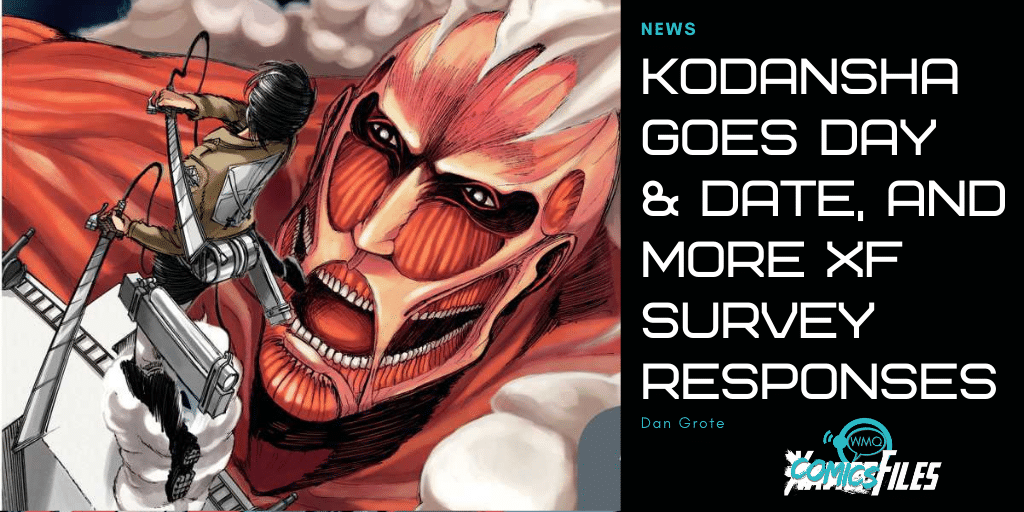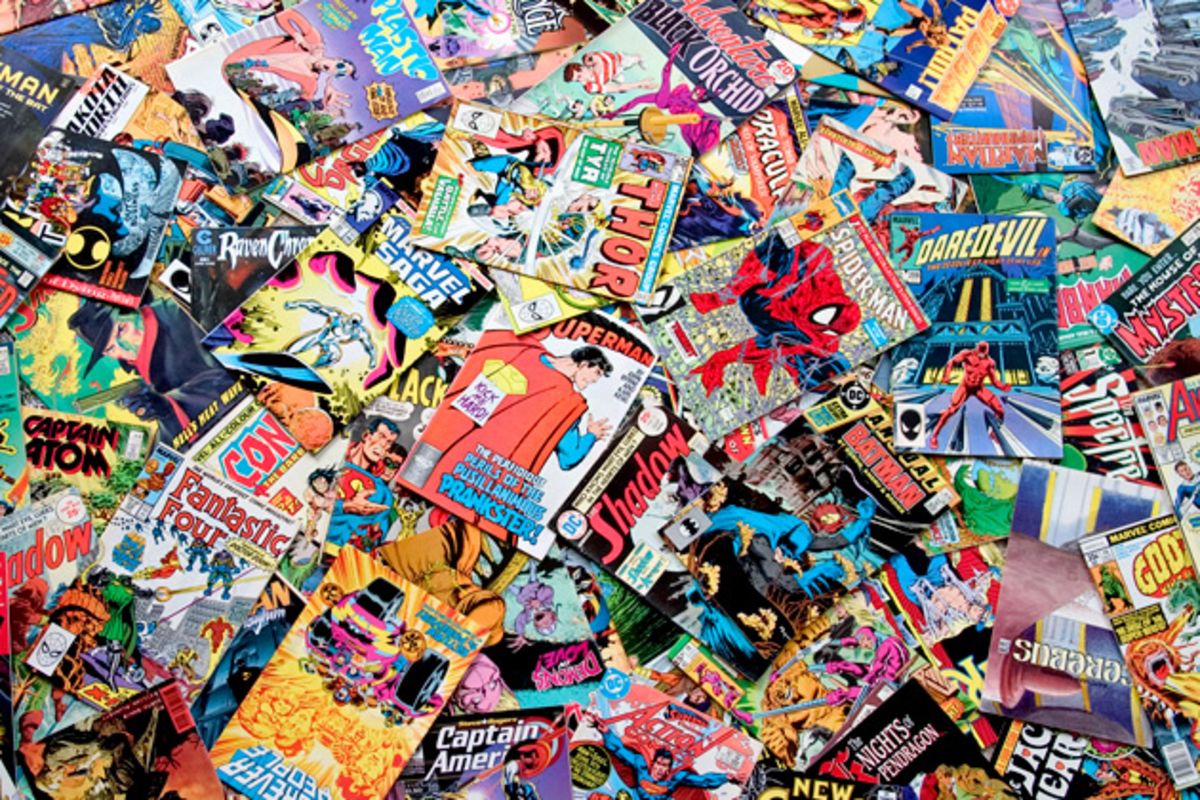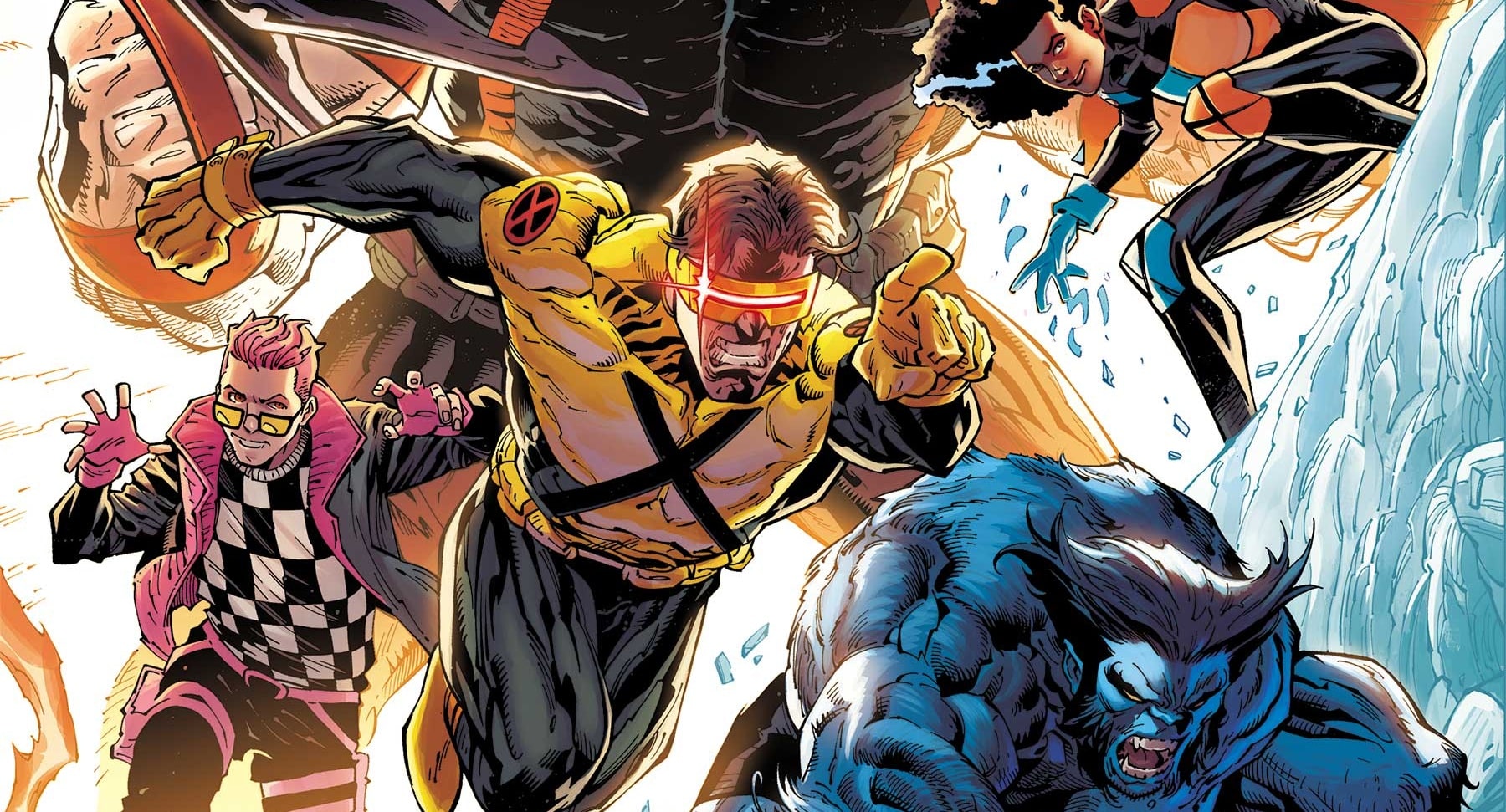Last month, we reported on Archie Comics going day-and-date on comiXology Unlimited, releasing new comics direct to the subscription arm of Amazon’s digital comics service.
On Monday, manga publisher Kodansha Comics became the second company to go that route, announcing it will drop new chapters of series such as Attack on Titan, Card Captor Sakura: Clear Card, The Drops of God and Shaman King on Unlimited the same day as they hit the streets in Japan.
This likely is good news for subscribers of the $5.99-a-month Unlimited service, manga readers and manga publishers looking to circumvent piracy.
It’s worth noting that with the normal six-month-wait to read comics on platforms like comiXology Unlimited and Marvel Unlimited, subscribers would just now be getting around to April’s comics. Except, um, it was April and there were next to no comics because of the Diamond shutdown. Going day-and-date now eliminates what would be a two-month gap in new product.
All this is a great reminder that we’re still looking for creators, comic shop owners, readers and more to participate in the 2021 Xavier Files Comics Survey, in which we’re asking:
With everything that’s happened this year, what is one thing the comics industry needs to do to evolve in 2021?
Let’s take another look at some of the responses we’ve gotten so far:
Embrace digital
Rebecca Hart, fan
I think that comics’ main problem is that they are very hard for outsiders to get into. As an outsider, walking into a comic book shop is pretty overwhelming and it’s very hard to know where to begin, so I think more books in a stand-alone graphic novel format would be good. I love single issues and ongoing stories, but I think they make it very difficult to grow an audience.
Jesse Lonergan, writer/artist, HEDRA, jesselonergan.com
Go all out on diversity. Diversity in creative teams, diversity in comic styles, genres, audiences and more. Comics can only survive by being more than just superheroes made by middle-aged white guys. Even as a not-yet-middle-aged white guy, my shelves are full of superhero comics, but I’m finding more and more amazing comics that aren’t my standard fare. By and large, the best comics I’ve read in the last few years have been by and about BIPOC and queer creators. And those same comics are the ones that I’ve been able to get my non-comic reading friends and family to start reading. “Yeah, the MCU is cool and all…” they say, but what gets them actually reading comics is the type of comics that used to be relegated to webcomics. Comics can’t thrive as a niche industry. To survive, it needs more people making more comics that more people are interested in.
Mike Donohue, artist, donohuedraws.com
I suppose I can be accused of having a slight bias toward the direct market, what with it being my sole source of income and all, but I would like to see comic stores stick around for a while. To that end, a reimagining of the direct market system is a must. I don’t have all the answers as to how this should happen, necessarily, but ideas that reduce the economic risk for retailers should be considered very seriously. At the moment, especially in the midst of the COVID-depressed economic climate, stores are hurting – not that comic stores are unique in that respect, but it’s the truth. I know a lot of publishers are feeling the burn, too, and heck, a lot of my regular customers are hurting just as bad, if not worse, than that. But comic stores are coming off of a period where many of us had literally ZERO income for two months due to Diamond’s shutdown. At least publishers could prop up their cashflow with digital sales. For most comic stores, the single issue format is still the breadwinner. Some publishers (I see you, BOOM, and I acknowledge your generous efforts) offering returnability on new series is a great starting point for fostering the growth of new series. I know it’s been used – and abandoned – by larger (cough*DC*coughcough*) companies, and it’s not really tenable for most indies, but having enough copies of a new series on the rack is the best way to establish an audience for a book, and returnability is a great way to encourage retailers to generously stock copies. I don’t even think I’d hate the idea of a reduced discount in exchange for full or even 50% returnability on all books, though I’d need to know what kind of discount reduction we’re talking about first. A viable alternative to Diamond has been on my wish list for quite a while, and while distributors operated by every comic shop’s two biggest direct competitors aren’t exactly what I had in mind, I guess it’s a start? I actually think the emergence of the book market is a good sign in this regard; it tells me that customer habits are further shifting toward graphic novels, which are widely available through regular book distributors, where a more competitive distribution market already exists. Managing multiple distributors may be more work for retailers, but having multiple options in distribution allows stores to better control their cost of inventory while simultaneously increasing their ability to keep books in stock. Having a backup option when my primary distributor was awaiting their own restock on a best-seller has shaved days and even weeks off of getting popular books back on my shelves too many times to count. I mentioned earlier that single issue comics are still the most profitable part of the direct market, but I think a stronger focus on graphic novels is a smart bet for most comic stores. Most kids who come into my store have no time for single issues; the GN format is just what interests them the most. Those kids will grow up eventually, and chances are their choice in format won’t change. Most of my single-issue customers haven’t made the switch to GNs because that’s just not the format they grew up with, so I don’t see this generation of young readers changing their format of choice, either. I do think comic shops are a really central part of the comics industry and the culture surrounding it, and even if I was just a fan, it’d be a part of the industry I never want to go away. But in order for them to do so, everyone involved in the direct market has to be willing to change the way the system operates.
John Bush, manager, Dewey’s Comic City, @jbushwords on Twitter
Kill Steve Geppi. No but really, Diamond started to fracture and now that people know it’s held together by baling wire and hope and not the monolith it pretends to be, it’s time to replace it with something more stable and less exploitative. Also give Nola money.
Nola Pfau, editor, Women Write About Comics
Take the 2021 Xavier Files Comics Survey here.
Dan Grote is the editor and publisher of ComicsXF, having won the site by ritual combat. By day, he’s a newspaper editor, and by night, he’s … also an editor. He co-hosts The ComicsXF Interview Podcast with Matt Lazorwitz. He lives in New Jersey with his wife, two kids and two miniature dachshunds, and his third, fictional son, Peter Paul Winston Wisdom. Follow him @danielpgrote.bsky.social.






